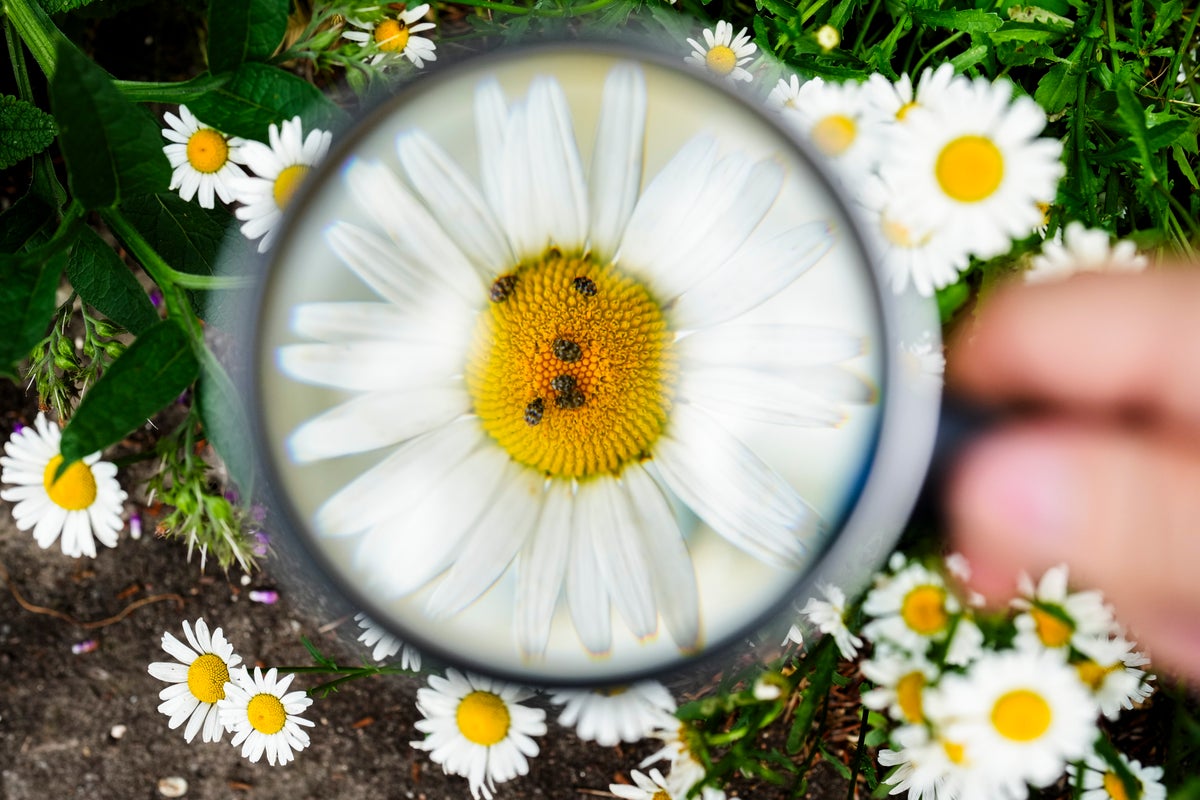
In a strip of greenery between Berlin’s Natural History Museum and a busy street, bumble bees move swiftly between flowers while a ladybug makes its way along a leaf full of aphids and bugs crawl about.
Gardens, balconies, verges, fields, woods and patches of wilderness across Germany will be the scene of this year’s “insect summer,” now in its seventh year, organized by the country’s Nature And Biodiversity Conservation Union, or NABU. The environmental group has invited people to spend an hour counting the insects they see in a 10-meter (33-foot) radius.
“We have seen that a few insects that normally occur only in the south might be spreading further north,” including the violet carpenter bee, says Laura Breitkreuz, an expert on biodiversity and entomology at NABU, describing that as a sign of advancing climate change and warmer temperatures.
Over time, people appear to recognize more insects — a key goal of the citizen science project, which doesn’t aim to deliver precise scientific monitoring but can give researchers information on trends and unexpected insights.
Insects are an essential building block of ecosystems, crucial to pollination, food chains and to keeping the soil productive. But from bees to butterflies, insect populations have been in decline in recent decades — a drop often blamed on human causes such as the use of damaging chemicals, destruction of natural habitats and climate change.
Breitkreuz points to people’s lack of knowledge of “what is crawling around outside their door” as one contributing factor. “It’s very important for us to show people how important, great and interesting insects are,” she says.
Organizers have prepared a form and a mobile app to help people identify and report their firebug and lacewing sightings during this year’s two insect-counting events. Those are set from May 31 to June 9 and Aug. 2-11, giving insect-counters a chance to see what’s flying and crawling in different seasons. No equipment is needed to join in.



.png?w=600)



